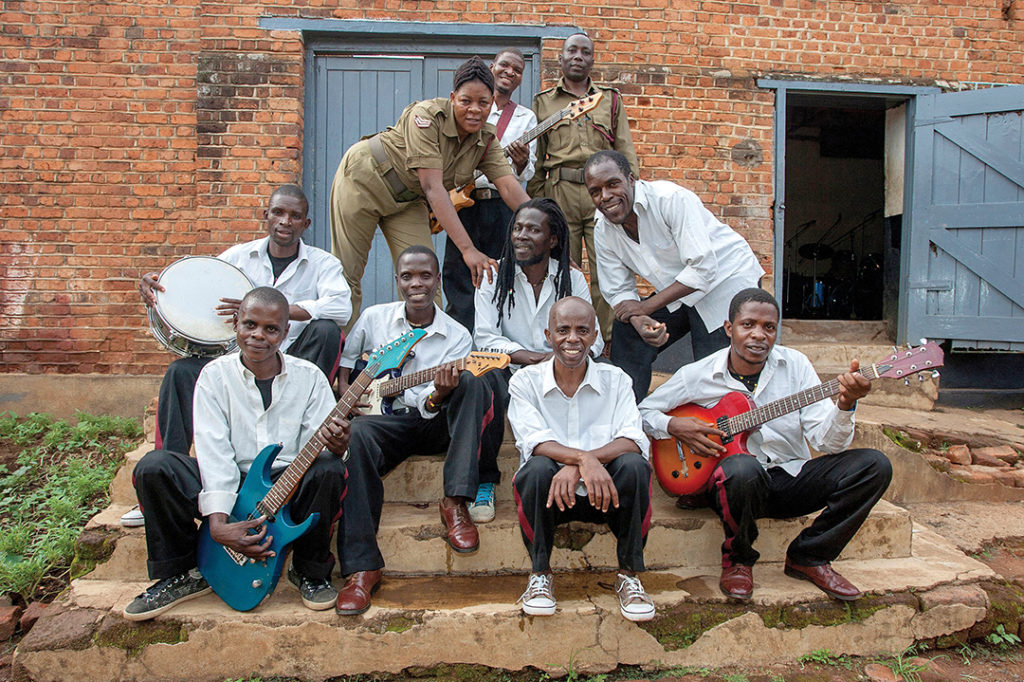AGENCE FRANCE-PRESSE
Malawi’s Zomba Prison Project band has the distinction of being nominated for a prestigious Grammy Award. Its 20-track record I Have No Everything Here was nominated in the Best World Music Album category for 2016.
Beninese singer Angelique Kidjo won the award, her third Grammy, and the second consecutive one in the World Music category.
Musical talent at the Zomba maximum-security prison was discovered in 2013 when U.S. producer Ian Brennan spent two weeks working with 60 inmates and guards to make the album. Six hours of recordings were edited down into the final selection of songs, featuring 16 of the prison’s musicians, singing mainly in the local Chichewa language.
Elias Chimenya, 46, who is serving a life term for killing a man in a quarrel in the 1980s, wrote and sang the haunting ballad Jealous Neighbour, the album’s fifth track.
“I am a reformed person, and music has helped me to be cool and deal with the situation of being incarcerated for life,” he said. “I hope to not die in prison and instead to be released to take up a music career outside.”
More than two years after the recording sessions, news of the award nomination came as a surprise to inmates. “We are baffled because we didn’t expect prisoners could be nominated,” said Nyerenda, the 34-year-old guitarist, who expects to be freed in 2017 after serving a 10-year sentence for house burglary.
The prison already had an all-male band that tours local schools to spread HIV prevention messages.
The Grammy-nominated album includes other inmates — and half the songs are by female prisoners living in a separate part of the prison, where they have no instruments except hand drums, buckets and pieces of pipe.
“The nomination alone has inspired us and already made us famous both in Malawi and abroad,” said Binamo, the prison guard who wrote the lyrics for a song called Please. Don’t Kill My Child.
“We teach vocals, keyboard, drums and guitar until they become musicians,” Binawo said. “Play music can bring relief to them. Many people have a negative attitude towards the prison authorities. They think we only punish convicts.”
Brennan, who has worked regularly in U.S. prisons, said he was amazed by how music sessions in the Zomba prison “did not have any rigid boundary between guards and prisoners.”
He defended the album, which was released in early 2015, against accusations that it celebrated criminals. “This is not about glorifying anyone — it is about humanizing, and everyone should be humanized,” he said.
Brennan said the prison, built in the 1930s, was in poor repair but that the prisoners appeared to be relatively well-treated. The prisoners were paid a small fee for the recording, and any profits will be shared among them — including several who have since been released.

